Istanbul Koca Mustafa Pasha Mosque
Koca Mustafa Pasha Mosque
About Koca Mustafa Pasha Mosque, Koca Mustafa Pasha Mosque is a historical mosque located in the Fatih district of Istanbul. One of the historical and cultural riches of Istanbul, this mosque draws attention with its architectural features belonging to the Ottoman period. Koca Mustafa Pasha Mosque was built towards the end of the 15th century by Koca Mustafa Pasha, one of the grand viziers of Bayezid II.
An impressive example of Ottoman architecture, the mosque has an original design reflecting the architectural style of the period. Its large courtyard, minaret and interior decorations are among the architectural beauties of the mosque. Koca Mustafa Pasha Mosque is an important point of visit for those interested in history and architecture. By visiting the mosque, you can closely observe the Ottoman period architecture and experience the historical atmosphere.
History of Koca Mustafa Pasha Mosque
History of Koca Mustafa Pasha Mosque, Koca Mustafa Pasha Mosque was built by Mimar Sinan, the famous architect of the Ottoman Empire, between 1551-1552 in the Fatih district of Istanbul. The mosque was built by Koca Mustafa Pasha, an important statesman during the Ottoman period. This mosque coincides with the middle period of Mimar Sinan's career.
Koca Mustafa Pasha Mosque bears the classical features of Ottoman architecture and reflects the aesthetic understanding of the period.
The architectural features of the building include a domed main space, minaret, mihrab and courtyard. When the architectural details of the mosque are examined, it is seen that Mimar Sinan skillfully combined the architectural trends of his period.
Koca Mustafa Pasha Mosque is an important historical monument that has managed to carry the beauties of Ottoman architecture to the present day, despite various restorations over time.
Where is Koca Mustafa Pasha Mosque?
Where is Koca Mustafa Pasha Mosque? Koca Mustafa Pasha Mosque is located in the Koca Mustafa Pasha neighborhood in the Fatih district of Istanbul.
How to get to Koca Mustafa Pasha Mosque?
How to get to Koca Mustafa Pasha Mosque? In order to go to Koca Mustafa Pasha Mosque, you must first go to Istanbul. You can go to Fatih from Istanbul in several different ways;
- Public Transportation: If you want to go to Koca Mustafa Paşa Mosque from Istanbul city center by public transportation, you can use the city buses or minibuses. There are bus, metro or minibus services to Koca Mustafa Pasha Mosque, so we recommend you to get information from the local bus terminal or bus station
- Guided Tours; Tour companies in Istanbul organize guided tours to visit places like Koca Mustafa Pasha Mosque. These tours include transportation and guidance services and can make your visit to Koca Mustafa Pasha Mosque easier and more informed.
- Taxi: There are many taxis in Istanbul. It is possible to go to taxi stands or use taxi apps to call a taxi. Taking a taxi to Koca Mustafa Paşa Mosque can be a fast and comfortable option.
- Private Car: If you have rented a car in Istanbul or have your own car, it is quite easy to get to Koca Mustafa Pasha Mosque using GPS or maps.
Life of Koca Mustafa Pasha
Life of Koca Mustafa Pasha, Koca Mustafa Pasha was an important statesman in the Ottoman Empire. Precise information about the date and place of his birth is limited. However, it is thought that he lived in the late 15th and early 16th centuries of the Ottoman Empire. Koca Mustafa Pasha was a statesman who held high positions in the government of the Ottoman Empire.
He served as governor of various provinces in the Ottoman administration and as an important commander in the Ottoman army. He was also promoted to grand vizier, one of the highest positions in the Ottoman government. Koca Mustafa Pasha is believed to have been an educated statesman. He was also interested in art and culture and contributed to the cultural development of the period.
There is no precise information about the date of Koca Mustafa Pasha's death and where he was buried. However, he may have been buried in the courtyard of a mosque in Istanbul or in a private mausoleum, as was usually the case for important statesmen of the Ottoman Empire.
Koca Mustafa Pasha Mosque Architecture
Koca Mustafa Pasha Mosque architecture, Koca Mustafa Pasha Mosque is one of the important architectural works built during the Ottoman Empire. Here are some architectural features of Koca Mustafa Pasha Mosque:
- Plan and Year of Construction: Koca Mustafa Pasha Mosque was built by Mimar Sinan. The mosque bears the characteristics of classical Ottoman architecture. Its construction was completed in the middle of the 16th century, between 1563-1564.
- Mosque Type: Koca Mustafa Pasha Mosque is located in a complex. The complex includes a mosque, madrasah, tomb and fountain.
- Minaret: The mosque has a minaret. The minaret has a cylindrical body form which is common in Ottoman minarets. The minaret ends with a high dome and has a balcony.
- Domes and Decorations: While the main dome of the mosque covers the central space, there are semi-domes on the sides and buttresses carrying them. The interior of the mosque is decorated with geometric patterns and ornaments, which are frequently seen in Ottoman period mosques.
- Mihrab and Minbar: The mihrab inside the mosque is decorated with elaborate tiles. The minbar is also a special structure and is decorated with woodwork.
- Use of Materials: Stone material was generally used in the construction of Koca Mustafa Pasha Mosque. Especially on the exterior, regular stone alignments attract attention.
- Courtyard and Porticoes: The mosque is located in a large courtyard and there are porticoes (galleries with columns) around the courtyard.
The Architect of Koca Mustafa Pasha Mosque
The architect of the Koca Mustafa Pasha Mosque is the famous Ottoman architect Mimar Sinan. Mimar Sinan is one of the most important architects of the Ottoman Empire and designed many important works in the mid-16th century. Koca Mustafa Pasha Mosque is one of these works. Mimar Sinan's mastery is recognized through his many mosques, bridges, palaces and other structures that made significant contributions to Ottoman architecture.
When was the Koca Mustafa Pasha Mosque Built?
When was the Koca Mustafa Pasha Mosque built? It was completed in the middle of the 16th century, between 1563-1564.
What to do around Koca Mustafa Pasha Mosque?
What to do around Koca Mustafa Pasha Mosque? The information about Koca Mustafa Pasha Mosque that we have prepared for you has ended here. We tried to give you useful information for those who want to have a pleasant time while visiting the mosque. You can make this list richer and more personalized by sharing your travel route experiences with us. Also, don't forget to explore other articles that we think you might be interested in.
You can visit our Istanbul Travel Plans, Istanbul Activities to Do and Istanbul Accommodation pages, or you can create your own travel plan from our Istanbul places to visit page.
Fatih is an important district of Istanbul full of historical and cultural richness. There are many historical and touristic places in this region. Here are some activities you can do around Koca Mustafa Pasha Mosque:
- Hagia Sophia Mosque: Hagia Sophia, which has an important place in the history of world architecture, is a must-visit building in Fatih. This building, which was first built as a church, was later converted into a mosque and is still used as a mosque today.
- Topkapi Palace: Topkapi Palace, the center of government of the Ottoman Empire, fascinates its visitors with its rich collections and historical atmosphere.
- Sultanahmet Square: Located in the center of the Historical Peninsula, this square is home to many important buildings. Important buildings such as the Blue Mosque, the German Fountain and the Obelisk are located here.
- Mısır Bazaar: Selling spices, souvenirs and fresh produce, this historic bazaar is famous for its colorful and lively atmosphere.
- Grand Bazaar: One of the oldest and largest covered bazaars in the world, the Grand Bazaar is an ideal place for those who want to shop.
- Fener and Balat: Famous for their historic houses, churches and streets, these neighborhoods are a great option for those who want to take a walk and explore different cultures.
- Chora Museum (Kariye Museum): Famous for its Byzantine mosaics and frescoes, this museum is an important stop for art lovers.
- Fatih Mosque: You can visit historical mosques such as Koca Mustafa Pasha Mosque and Mihrimah Sultan Mosque.
- Güzelcehisar Castle: Located on the Bosphorus, this castle offers a historical atmosphere.
- Süleymaniye Bath: You can visit Süleymaniye Bath to see the Ottoman bath architecture and experience a traditional bath experience.

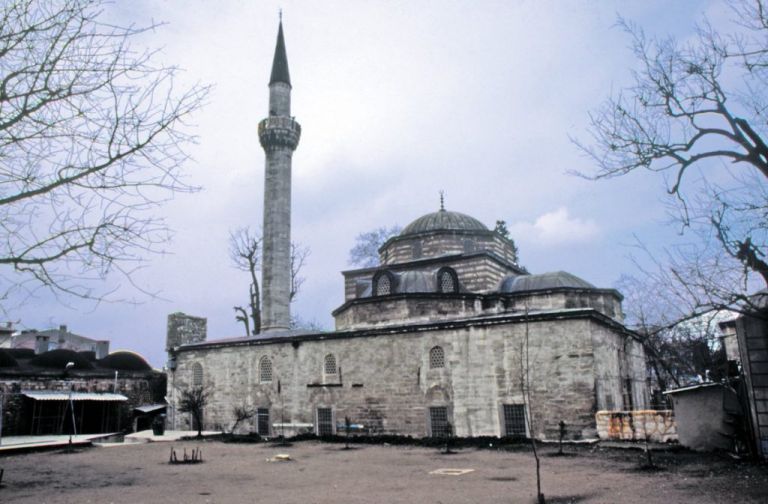
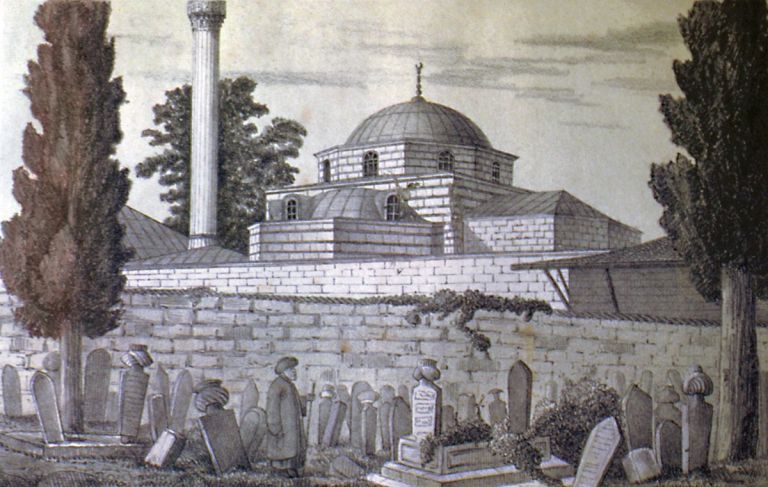
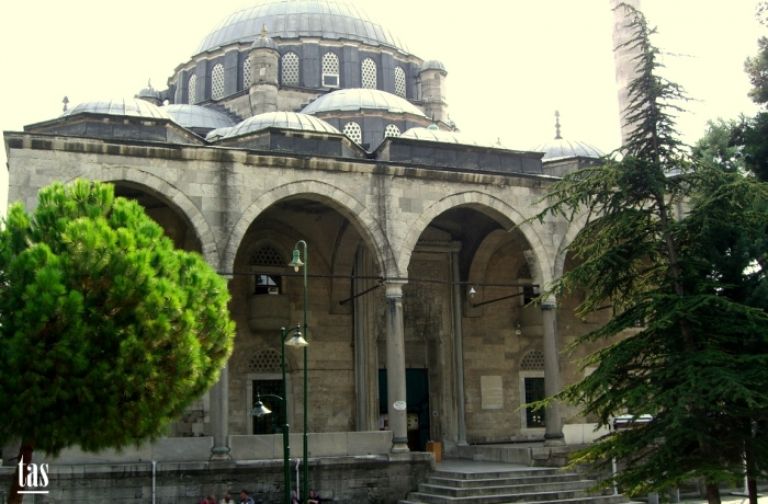
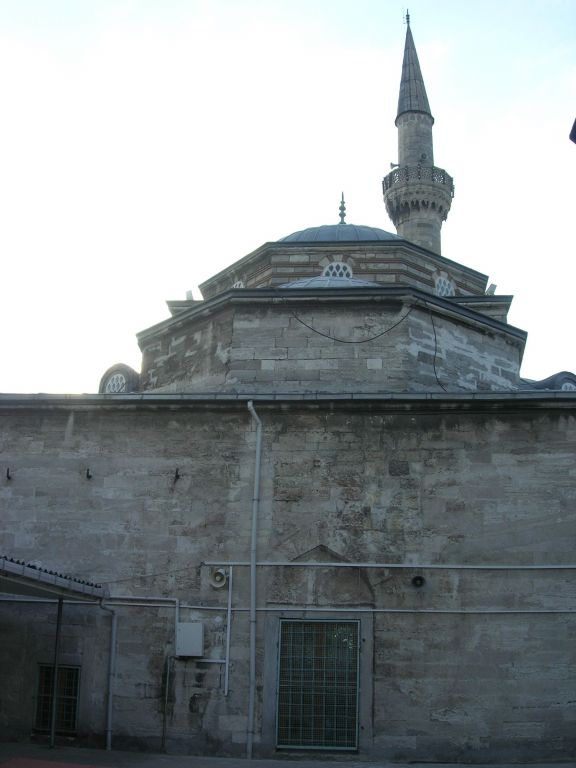




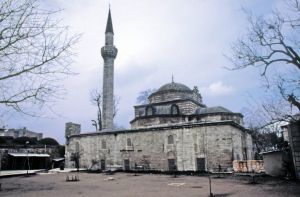
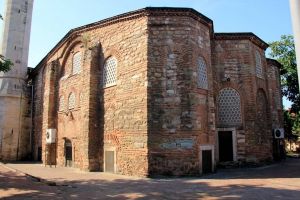
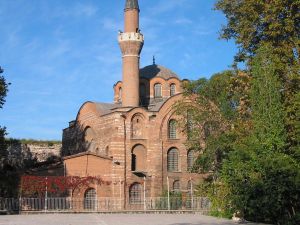
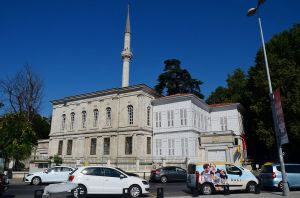
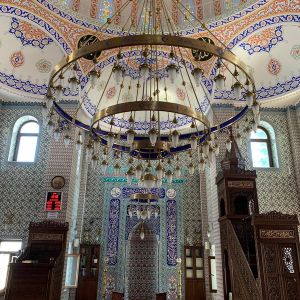
Değerlendirmeler